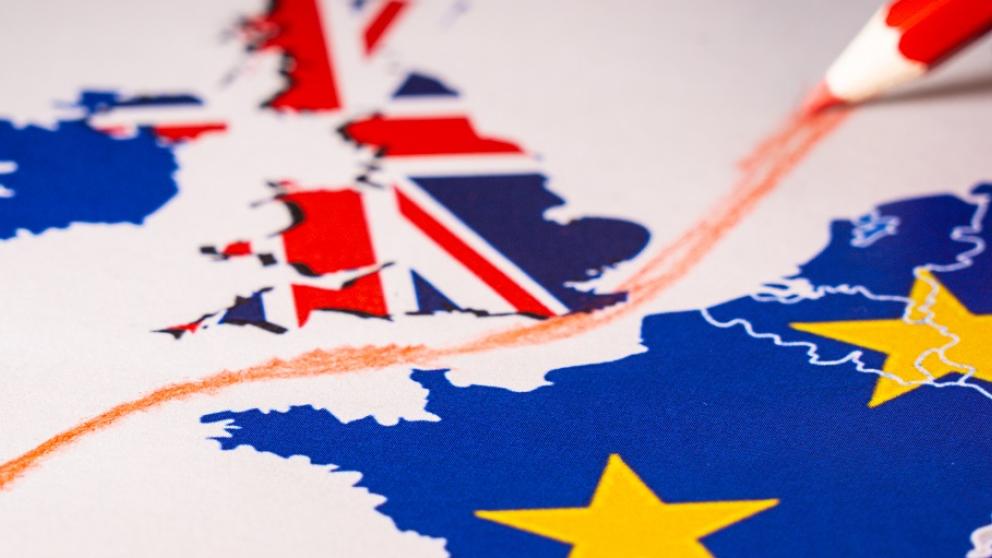
As negotiations on a final Brexit deal with the EU begin, experts from the University of Salford Business School offer advice to the negotiating team.
Dr Maria Rana, expert in economics and finance, said: “According to the UK Government, one thing is certain: “the UK will be leaving the single market and customs union at the end of 2020, taking back control of borders, and beginning to strike trade deals around the world”. This is easier said than done. Especially because the UK’s strategy for trade policy after Brexit, which aims to strengthen ties with countries like China, India, Australia, New Zealand and the US, is not really working to plan.
“Negotiating reasonable new trade deals, without compromising, requires a long time, and we all know what is at stake with the US. Who would like chlorinated chicken on their plates or having to pay to see the GP? Not being able to negotiate trade deals with the EU would put the UK in a very vulnerable position.
“The UK’s current account has been historically in deficit since 1984, reaching a record level of 5.2% of GDP in 2016 (the year of the Brexit referendum), recovering to 3.5% in 2017 and deteriorating again to 4.3% of GDP in 2018.
“This is mainly due to a widening of trade deficit with European countries not in the EU. Additionally, the UK’s trade surplus with non-EU countries in 2018 was at its narrowest since 2012. The UK now holds the largest current account deficit among other advanced economies (ONS, 2019). UK’s negotiators should not forget that the EU remains an important trade partner, with almost 48% of UK goods exports (worth £145 billion) going to the EU. If they do not do so the impact on the availability of goods and access to things like healthcare could be under threat.”
Dr Jonathan Swift, expert in International Business at the University of Salford Business School, said:
“As negotiations begin it is essential that Mr Barclay and his team outline exactly what we want, as this will avoid a repetition of the EU tactic of complaining that the UK has never said what it wants, so the delay is down to our indecision, rather than their procrastination.
“The only relationship that the UK requires with Brussels is that which we had when we first joined in 1973: a Free Trade Agreement. Michel Barnier et. al . should understand that they now have less than one year to come to such an agreement, or we will simply leave and all trade will be conducted on WTO terms.
“This would be highly disadvantageous for the EU, as they export far more to us than we do to them. Also, if we do leave without a deal, we will be under no obligation to pay the EU any reparations, around £39 billion. As stated in EU documents: “This report is put forward with a view to the meeting of the European Council (Article 50) of 14-15 December 2017. Under the caveat that nothing is agreed until everything is agreed, the joint commitments set out in this joint report shall be reflected in the Withdrawal Agreement in full detail.” This means that despite predictable EU attempts to break down the trade agreement into smaller ‘chunks’, referring to this original document, we should point out that we will not agree to measures in isolation, and that there is less than one year to agree everything.”
International finance expert Faisal Sheikh said: “Post-Brexit, the EU remains the world’s largest market and crucially the UK’s major trading partner.
“If I was part of the ‘dream team’ of UK negotiators then I would recommend the following strategies to maximise UK gains or optimise trade-offs or make them politically palatable:
- ‘Bargain from a position of Strength’ – However, this is easier said than done as UK–EU trade accounts for a much larger proportion of the UK’s economy than the EU’s economy. Thus, the UK needs a deal more than the EU does and the only solution to this dilemma is for the UK team to ‘play their cards’ deftly and with guile almost giving the impression of victory.
- ‘Flexibility’ – Making strategic concessions provides a basis for other countries to give the UK what it wants. Therefore, the UK team must enter negotiations knowing exactly what it is willing and not willing to concede. Also what concessions it wants to gain from other countries. Although the negotiators will have to make the UK sufficiently attractive otherwise the EU will impose new tariffs.
- ‘Big guns matter’ – the UK team will need to comprise of what I call the ‘professional navy seals’ of trade lawyers, negotiators, economists and diplomats i.e. Best of the best. Since, the minutiae will be vast and even tiny errors could unleash profuse unintended consequences as the stakes are high. Personal wellbeing of the participants must be non-negotiable as the hours will be unrelenting.
- Political snakes or ladders? - Trade negotiations are path dependent and the final outcome depends upon the starting point. So I believe our PM’s threat of a no-deal June 2020 Brexit if negotiations do not go the UK way are premature and will anger their EU opposite numbers. We should negotiate from a position of strength but be open to all opportunities as there may been hidden ladders that lead to a successful result.“In short whether the UK is able to achieve the objectives it has chosen, will depend entirely upon the success of its negotiating strategy. We wish our negotiating team MAZEL TOV / GOOD LUCK!”
For all press office enquiries please email communications@salford.ac.uk or phone 0161 295 2238.
Share:
